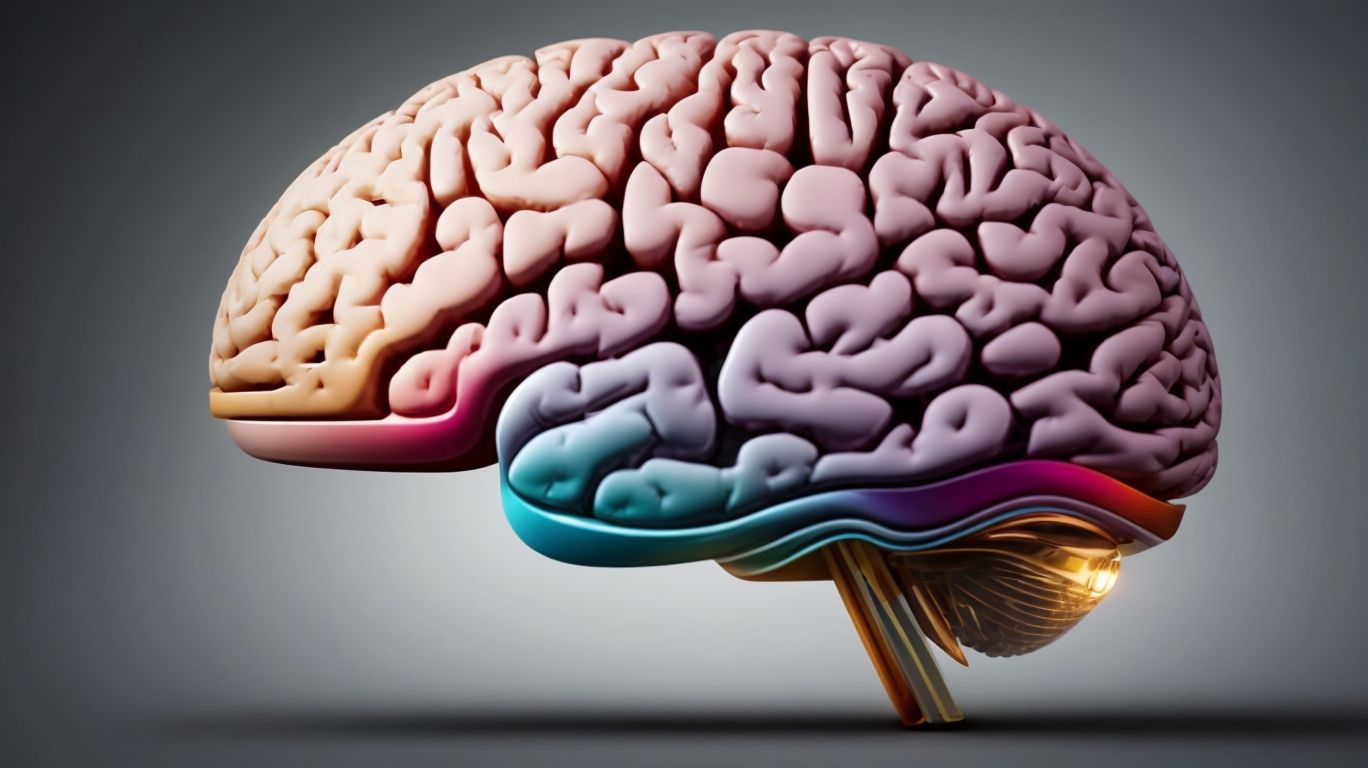The Flynn Effect is a fascinating phenomenon in psychology that explores the increase in IQ scores over generations. This article delves into the theories behind the Flynn Effect, including the Nutrition Theory, Education Theory, and Technological Advancement Theory.
It also examines the factors contributing to this effect, such as improved nutrition, better education opportunities, and increased exposure to technology. Criticisms of the Flynn Effect, its impact on IQ tests, and its implications for education, employment, and cultural norms are also discussed.
Join us as we unravel the mysteries of the Flynn Effect and its implications for future generations.
Contents
- 1 What Is the Flynn Effect?
- 2 What Are the Theories Behind the Flynn Effect?
- 3 What Are the Factors That Contribute to the Flynn Effect?
- 4 What Are the Criticisms of the Flynn Effect?
- 5 How Does the Flynn Effect Impact IQ Tests?
- 6 What Are the Implications of the Flynn Effect?
- 7 Frequently Asked Questions
- 7.1 What is the Flynn Effect in Psychology?
- 7.2 What is the cause of the Flynn Effect?
- 7.3 Does the Flynn Effect apply to all IQ tests?
- 7.4 Is the Flynn Effect a global trend?
- 7.5 How does the Flynn Effect impact our understanding of intelligence?
- 7.6 Are there any potential drawbacks to the Flynn Effect?
What Is the Flynn Effect?
The Flynn Effect, named after researcher James Flynn, refers to the phenomenon where IQ scores have been rising steadily across different populations over the decades.
James Flynn’s work in the field of intelligence research shed light on the consistent increase in IQ scores worldwide. This trend was first noted in the mid-20th century and has sparked intriguing debates among psychologists and educators.
The Flynn Effect has influenced how we understand cognitive skills and the limitations of traditional intelligence testing methods. Flynn’s findings have challenged previous assumptions about the stability of intelligence and raised questions about the factors driving this IQ rise.
By analyzing vast datasets from various countries, Flynn identified societal shifts and educational advancements as potential factors contributing to the Flynn Effect.
What Are the Theories Behind the Flynn Effect?
Several theories have been proposed to explain the Flynn Effect, ranging from the influence of nutrition and education to advancements in technology and cognitive skills.
One prevalent hypothesis suggests that improvements in nutrition have contributed to the Flynn Effect, as access to a balanced diet can enhance brain development and overall cognitive abilities. Similarly, the expansion of educational opportunities and the emphasis on critical thinking skills have been linked to the rise in average IQ scores globally. The integration of technology in learning environments has provided new avenues for intellectual stimulation, potentially influencing the way individuals process information and solve problems.
The Nutrition Theory
The Nutrition Theory posits that improvements in nutrition and overall health have played a significant role in enhancing cognitive abilities and contributing to the rise in IQ scores.
Research studies have shown that a balanced diet rich in essential nutrients such as Omega-3 fatty acids, vitamins, and minerals can have a direct impact on brain function and cognitive performance. Omega-3 fatty acids, for example, are crucial for brain health, supporting memory and overall cognitive function. The gut-brain connection has gained attention in recent years, highlighting how a healthy digestive system can influence mental clarity and mood regulation.
The Education Theory
The Education Theory suggests that increased access to quality schooling, higher literacy rates, and enhanced educational opportunities have played a pivotal role in driving the Flynn Effect.
As societies have prioritized education and made curricula more comprehensive, individuals have had the chance to develop their cognitive abilities through structured learning environments. Educational advancements have not only boosted intelligence levels but have also led to a more informed and knowledgeable populace. Higher literacy rates signify an improved capacity for individuals to comprehend and analyze information critically, contributing to a more intellectually engaged society.
The Technological Advancement Theory
The Technological Advancement Theory proposes that the rapid modernization of societies, increased exposure to technology, and enriched environmental stimuli have contributed to the rise in IQ scores observed in the Flynn Effect.
Advances in technology, such as the widespread availability of educational apps, online learning platforms, and interactive tools, have revolutionized how individuals access information and engage with learning materials. This shift towards digital learning environments has prompted a cognitive adaptability among individuals, as they navigate complex information landscapes and develop critical thinking skills. The interconnectedness facilitated by technology has led to a sharing of diverse perspectives and ideas, further stimulating intellectual growth.
The enriched environmental stimuli, coupled with technological innovations, have prompted neuroplasticity in individuals’ brains, enhancing their ability to process information efficiently and make connections across different domains. For instance, exposure to interactive media and gamified learning experiences has been shown to enhance problem-solving skills and cognitive flexibility.
What Are the Factors That Contribute to the Flynn Effect?
Multiple factors contribute to the Flynn Effect, including improved nutrition, better education opportunities, and increased exposure to technology, all of which have influenced the steady rise in IQ scores.
One of the key pillars of the Flynn Effect is the impact of nutrition on cognitive development. Adequate nutrition plays a vital role in brain development, affecting memory retention, problem-solving skills, and overall cognitive abilities.
This is closely intertwined with access to education, which equips individuals with critical thinking skills, enhances knowledge acquisition, and fosters intellectual growth.
Simultaneously, the surge in technological advancements has revolutionized learning approaches, providing interactive tools, virtual resources, and online platforms that stimulate intellectual curiosity and promote continuous learning.
Improved Nutrition
Improved nutrition, characterized by better access to essential nutrients and balanced diets, has been a crucial factor in enhancing cognitive skills and contributing to the Flynn Effect.
Incorporating nutrient-rich foods in daily meals provides the brain with the necessary building blocks for optimal functioning. For instance, omega-3 fatty acids found in fish have been linked to improved memory and cognitive abilities. Vitamin-rich fruits and vegetables contain antioxidants that protect brain cells from oxidative stress, promoting healthy brain function.
A balanced diet not only fuels cognitive growth but also aids in maintaining focus and concentration levels. Consuming adequate amounts of protein, carbohydrates, and healthy fats supports neurotransmitter production, which is essential for cognitive enhancement.
Better Education Opportunities
Enhanced education opportunities, increased school attendance, and rising literacy rates have collectively contributed to the improvement in cognitive abilities and the progression of the Flynn Effect.
As educational systems have become more accessible and inclusive, individuals from diverse backgrounds now have greater access to formal learning environments, nurturing their intellectual capacities. The correlation between education and intelligence is evident in studies that show how enriched educational experiences can stimulate critical thinking skills and enhance problem-solving abilities.
The widespread dissemination of knowledge through improved literacy rates has give the power toed individuals to engage with complex information, fostering a culture of continuous learning and intellectual growth. The development of cognitive skills through education extends beyond academic achievements, influencing individuals’ adaptability and innovation in various facets of life.
Increased Exposure to Technology
The increased exposure to technology, including visual media and interactive platforms, has been proposed as a significant factor contributing to the cognitive advancements observed in the Flynn Effect.
With the proliferation of devices and gadgets that present information in dynamic and engaging ways, individuals, particularly the younger generation, are constantly interacting with various forms of digital content. This exposure fosters a different cognitive skill set, emphasizing quick decision-making, visual-spatial reasoning, and multitasking abilities.
Researchers
have also theorized that the interactive nature of technological interfaces can enhance problem-solving skills and critical thinking. By engaging with simulations, puzzles, and educational games, individuals exercise their mental faculties in ways that traditional learning methods may not provide.
What Are the Criticisms of the Flynn Effect?
The Flynn Effect has faced criticisms, including concerns over cultural biases in IQ testing and the influence of test familiarity on score improvements.
One major point of contention is the argument that traditional intelligence tests may not accurately capture the full extent of cognitive abilities, especially among individuals from different cultural backgrounds. This raises questions about the validity and fairness of the results obtained from these tests. Critics point out that repeated exposure to testing formats and exercises can artificially boost IQ scores, leading to a skewed perception of intelligence levels over time.
The Cultural Bias Criticism
One of the primary criticisms of the Flynn Effect is the concern regarding potential genetic and gene-environment correlations that may introduce biases in intelligence assessments.
When considering the interplay between genetics and environmental influences on intelligence, it is essential to delve into the complexities of gene-environment correlations. These correlations are crucial as they shed light on how genetic predispositions interact with environmental factors to shape an individual’s cognitive abilities.
Genetic factors play a significant role in determining an individual’s baseline intelligence level. These genetic predispositions can be influenced and modulated by external factors such as upbringing, education, and experiences.
For instance, children raised in intellectually stimulating environments tend to exhibit greater cognitive development compared to those raised in less stimulating environments, highlighting the impact of environmental factors on intelligence.
The Test-taking Skills Criticism
Critics of the Flynn Effect have raised questions about the impact of environmental stimuli, test familiarity, and exposure to abstract concepts on the observed rise in IQ scores over time.
Environmental factors play a crucial role in shaping one’s cognitive abilities. Whether it is the quality of education, socio-economic status, or even the availability of stimulating environments, these variables can significantly impact an individual’s performance on IQ tests. Environmental stimuli such as enriched learning environments, exposure to diverse experiences, and access to resources can all contribute to cognitive development and potentially influence IQ testing outcomes.
Along with environmental influences, the level of familiarity with the testing format and content can also play a significant role in test performance. Individuals who have had more exposure to IQ tests and their structure may demonstrate improvements in scores over time due to increased test familiarity.
How Does the Flynn Effect Impact IQ Tests?
The Flynn Effect has significant implications for IQ tests, affecting the interpretation of cognitive scores and necessitating adjustments in assessment methodologies such as the WAIS-IV.
Named after James R. Flynn, this phenomenon describes the trend of IQ scores rising over generations, prompting questions on the stability of standardized tests. IQ tests that have not adapted to this upward drift risk overestimating intellectual abilities. This presents a challenge in accurately assessing cognitive functions, particularly in comparative studies or longitudinal research.
To address this issue, intelligence testing has evolved. For instance, the WAIS-IV has undergone revisions to maintain the test’s validity and reliability in light of the Flynn Effect. These adjustments involve recalibrating scoring metrics and periodically updating norms to align with contemporary performance levels.
What Are the Implications of the Flynn Effect?
The Flynn Effect carries implications for education, employment trends, and the evolution of social and cultural norms, with far-reaching effects on future generations.
In the realm of education, the concept of the Flynn Effect challenges traditional methods of intelligence testing and calls into question standardized assessments. This phenomenon highlights the necessity for adaptive teaching strategies that cater to the increasing cognitive abilities of students.
In the workforce, the implications of the Flynn Effect are palpable as job requirements continue to shift towards higher levels of cognitive complexity. Employers are seeking individuals with advanced problem-solving skills and critical thinking abilities, reshaping the dynamics of various industries.
From a societal perspective, the Flynn Effect prompts a reevaluation of cultural norms and values, as higher average intelligence levels impact social interactions and decision-making processes. This gradual intellectual upsurge among populations has the potential to alter the fabric of societies and foster innovation and progress on a global scale.
Changes in Education and Employment
The Flynn Effect has prompted changes in education and employment practices, with meta-analyses and reports from institutions like the National Academy of Sciences highlighting the need for adaptive strategies.
Studies have shown that the rising average intelligence scores, reflected in the Flynn Effect, have triggered a reevaluation of traditional teaching methods and recruitment processes.
Historical data spanning several decades reveal a steady increase in IQ scores worldwide, indicating a fundamental shift in cognitive abilities among populations. This phenomenon has necessitated a rethinking of standardized testing practices and curriculum development to accommodate the evolving intellectual capacities.
Shifts in Social and Cultural Norms
The Flynn Effect has triggered shifts in social and cultural norms, impacting factors such as literacy rates and cognitive development trends as observed in studies by the National Research Center.
These changes have been significant, influencing the way individuals interact, learn, and perceive the world around them. With the rise of literacy rates, people are now more adept at processing information and engaging in critical thinking. This shift has also led to a transformation in educational systems, emphasizing the importance of continuous intellectual growth. Research findings from the National Research Center show a correlation between increased cognitive abilities and adaptability to evolving societal demands.
Effects on Future Generations
The Flynn Effect may have lasting effects on future generations, with technological advancements, environmental influences, and cognitive hypotheses shaping the trajectory of intelligence trends.
As the Flynn Effect suggests that average IQ scores have been rising over the past decades, it raises intriguing questions about how this trend will continue in the future. One important aspect to consider is the impact of technology on intelligence levels. With the rapid pace of technological development, individuals are constantly exposed to new information and cognitive challenges, which could potentially enhance cognitive abilities. Artificial intelligence (AI) is also playing a significant role in shaping how we think and solve problems, which could have profound implications on future generations’ intelligence levels.
Frequently Asked Questions
What is the Flynn Effect in Psychology?
The Flynn Effect, named after researcher James Flynn, refers to the phenomenon of the steady increase in IQ scores over time in different countries around the world.
What is the cause of the Flynn Effect?
The exact cause of the Flynn Effect is still debated among psychologists, but it is believed to be a combination of improved nutrition, access to education, and changes in the way we think and process information.
Does the Flynn Effect apply to all IQ tests?
Yes, the increase in IQ scores has been observed across all types of IQ tests, including verbal, performance, and full-scale IQ tests.
Is the Flynn Effect a global trend?
Yes, the Flynn Effect has been observed in many countries around the world, including developed and developing countries.
How does the Flynn Effect impact our understanding of intelligence?
The Flynn Effect challenges the traditional notion that intelligence is a fixed trait and suggests that it can change over time due to environmental and cultural factors.
Are there any potential drawbacks to the Flynn Effect?
Some researchers have raised concerns that the increase in IQ scores may not necessarily reflect a true increase in intelligence, but rather a better understanding and familiarity with test-taking strategies. Additionally, the Flynn Effect may also contribute to the widening achievement gap between different socioeconomic groups.



